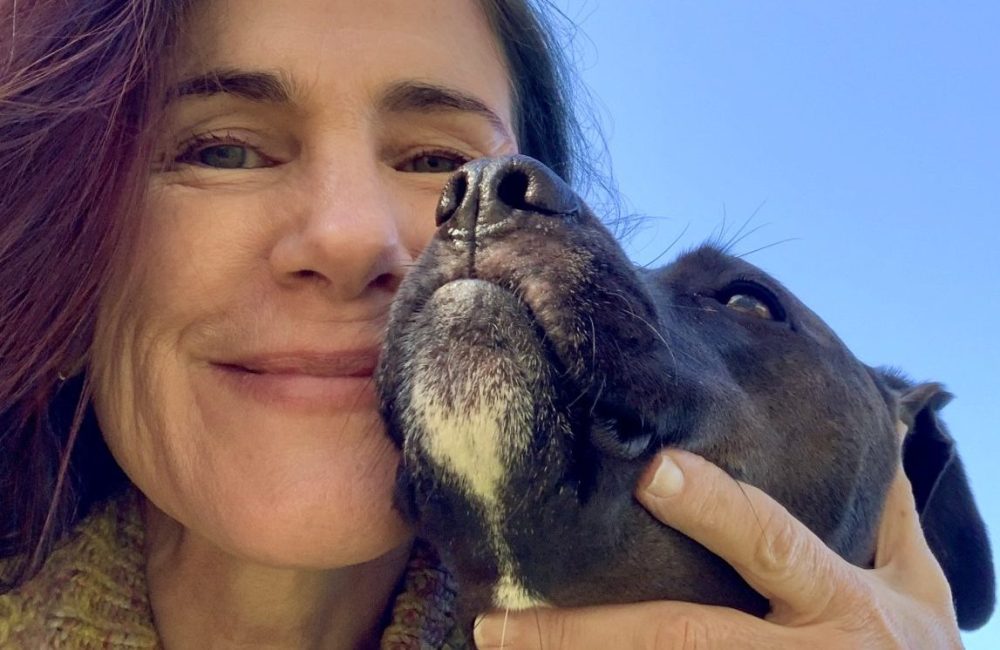Poetry, for me, lies somewhere between blissful and excruciating. When I take the time to read a piece, which is seldom due to the reasons above, I marvel at how only a few precise words can haul a truckload of soul. More often than not, though, it makes me antsy at best, question my intelligence at worst. Never mind trying to write some of it myself.
Do you have experience writing poetry?
Read on for the great kind of poetic journey, courtesy of blogger/writer David Selzer. He’s a poet who makes it look easy…
 Photo of poet/blogger David Selzer by Sylvia Selzer.
Photo of poet/blogger David Selzer by Sylvia Selzer.Making Poetry by David Selzer
I was born in London, UK, in 1942 but have lived most of my life in Hoole, a Victorian suburb of Chester, a city in the north west of England.
I have been writing poetry since I was 14. In the summer holidays of 1957, I was on a day trip with my Auntie Renee to Llandudno, a town in North Wales. We were sitting on the steep slope above St Tudno’s church. Two things happened. Inspired by a poem, about the terrors of a nuclear holocaust, written by a sixth former and published in that summer term’s school magazine, I decided that I should be a poet. It seemed a grand thing to write about important subjects and be read by hundreds of people. (I hadn’t at that point actually written anything).
Before or after the decision, I can’t remember which, a group of nuns, in the long, black habits they wore then, left the church and climbed along one of the sheep tracks up the slope. My aunt would have commented on it, I’m sure, but I can’t remember what she said. The pristine image has stayed with me. I used it in a poem more than twenty years later, and in a screenplay nearly forty years later.
Poetry in some ways is the easiest of the arts. It is solitary, and comparatively economical in terms of time-over-task. The technology needed is minimal — just a pencil and some paper. No violins or blocks of Carrara marble.
I have always had things I want to say about love and death, and human history, pictures I wanted to create, stories I wanted to tell. Making poetry has been part of my life for more than sixty years. It is a compulsion. I cannot imagine ever saying to myself, I shall write no more poems.
In 2009, I came to the conclusion that, in order for most poetry to reach as wide a readership as possible –- and a readership which, if it chooses, can truly interact with the writer — publication on the web rather than in book form is the way forward. My website was launched in April of that year.
The first poem to be published on the site was:
A Short History
For a generation, like weather cocks,
their skeletons swung near the highway.
James Price and Thomas Brown had robbed the Mail.
Years turned. The Gowy flooded and the heath
flowered. Travellers noted the bones
hanging in chains by the Warrington road.
Justices ordered the gibbet removed,
the remains disposed of. In Price’s skull,
while Napoleon was crossing the Alps
or Telford building bridges or Hegel
defining Historical Necessity
or Goya painting Wellington’s portrait,
a robin made its nest.
The latest to be published (i.e. as of June 25th 2020) is:
The Colston Bun
‘And ye shall overthrow their altars, and break their pillars, and burn their groves with fire; and ye shall hew down the graven images of their gods, and destroy the names of them out of that place.’ DEUTERONOMY 12.3
‘Black deaths do not have a good press, especially when they occur in the custody of our custodians. The media leads the public to believe that our guardians can do no wrong. Racism leads them to believe that blacks can do no right. The silence of the custodial system is compounded by the silences of racism.’ DEADLY SILENCE: BLACK DEATHS IN CUSTODY, Institute of Race Relations, London, 1991
Anger, one Sunday in June, overcame
decorum in that diverse city,
and – no doubt, inspired by the toppling
of other graven tyrants – righteously
pulled down the effigy, with a thump of stone
and a hollow gong of metal, and tossed it
from the quay into the harbour water.
***
The Royal African Company received
its charter from Charles II and James,
his brother, hence the US east coast seaports
Jamestown and Charleston. It was established
by the restored royals to provide them,
free of interference from the Commons,
with their own spending money. Board members
included the philosopher, John Locke.
The company’s profits came mostly
from enslaving West African men, women
and children, and transporting them across
the North Atlantic’s turbulence. More than
two hundred thousand were taken, and nearly
fifty thousand died on the journey,
the firm’s double entry bookkeeping shows.
One prominent member of the board
was Edward Colston, a Bristol merchant,
the city from whose harbour the slavers sailed,
and which, in due course, would make chocolates
and cigarettes. His philanthropy
inveigled the streets like a bad conscience,
almost a rebuke of victimhood:
his name on a hospital, a school,
a bun flavoured with dried currants and allspice
topped with sugar, given to the poor yearly
and still made for sale by local bakeries –
and himself looking thoughtful in bronze
with a periwig and a walking stick.
Apologists who claim he was merely
of his time, an accidental racist,
and collateral ethical damage,
like Henry Wills and Elizabeth Fry,
should remember John Locke, his damascene
moment unrecorded, who threw his shares
into the fire. ‘Slavery is so vile and
miserable an estate of man …that ’tis
hardly to be conceived’. That June Sunday
civic anger overcame decorum.
To my surprise, one of the most read poems is:
Marjorie Beebe’s Bottom
For Ian Craine (Note from da-Al: here’s a guest post by Ian Craine here.)
‘Marjorie Beebe is the greatest comic possibility
that ever worked in my studio. I think she is
destined to become the finest comedienne
the screen has ever seen.’ Mack Sennett
Her bottom was a serious matter:
the butt, as it were, of numerous pratfalls
in many Mack Sennett two reelers – like
The Chumps, Campus Crushes and The Cowcatcher’s
Daughter – in which she was a capricious,
lubricious Columbine with witty eyes
and good teeth and various Harlequins,
who ended invariably as losers.
From Kansas City, her mother took her
on the Yellow Brick Road to Tinsel Town.
Beebe and Sennett became lovers, despite
or because of the thirty year difference,
so he knew her asset first hand so to speak.
From silents to talkies, slapsticks to wise cracks,
her Mid West accent playing well, then Mack goes bust
and Marjorie gradually disappears.
Was it the booze? She was certainly
a toper. Or, more likely, The Hays Code:
irony suppressed, vulgarity outlawed,
Puritan America triumphant!
One of my favourites is:
Enchantment
“Do you know, Grandpa, this book has seventeen
chapters, and I’m on chapter fifteen,
‘The Forbidden Forest’?” “I didn’t,” I say,
“That’s excellent!” and this seven year old,
who has mastered the use of apostrophes,
curls up, like the proverbial worm
on the sofa, and continues to read
‘Harry Potter and the Philosopher’s Stone’.
I am re-reading, in English, ‘Le Grand Meaulnes’.
In the garden, using extended loppers,
Grandma is cutting choice blooms from a rose
we have had some thirty years, a rambler
as high as our upper floor and worthy
of Sleeping Beauty’s entranced gardens.
I look up to watch my grand child read. My pride
tempts me to ask fatuous questions –
“Are you enjoying it? What’s it about?” –
then speak of alchemy. Humility
prevails. I hear Grandma in the kitchen.
She is hammering the ends of the stems.
The deep scent of the roses, from wherever
she has placed the vase, enters the lounge
like a wisp of sweet smoke.
For more great poetry, visit David’s site!
What’s your experience with poetry?


Both , I write and I also read. Hope you read mine too💖
LikeLiked by 1 person
I just did — lovely!!
LikeLiked by 1 person
Thank you 😊
LikeLiked by 1 person
Loved your post! I too write poetry but I’m a beginner. My blog is http://www.nidhisblog131351793.wordpress.com …… Do follow coz it will motivate me
LikeLiked by 2 people
great 🙂
LikeLike